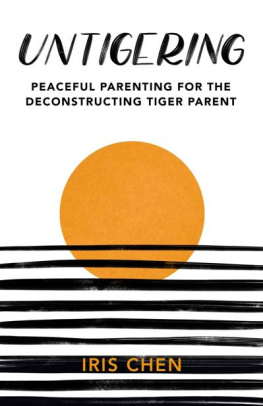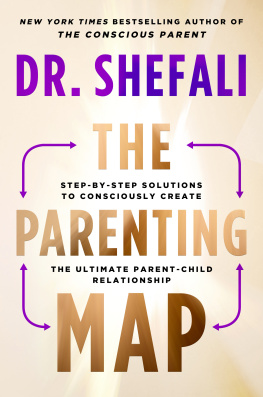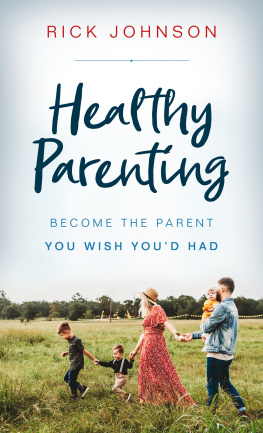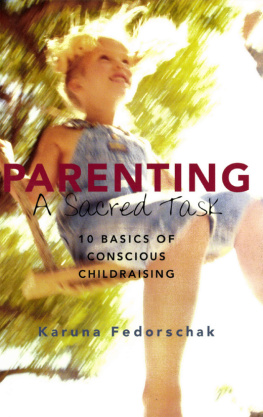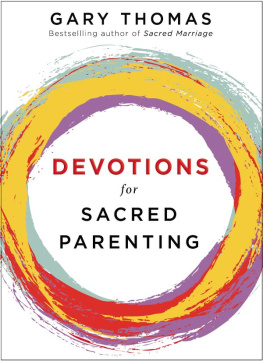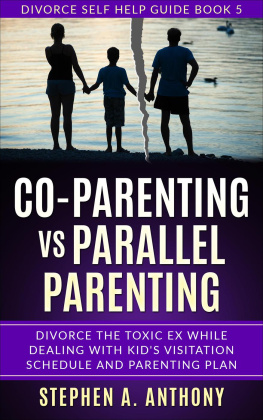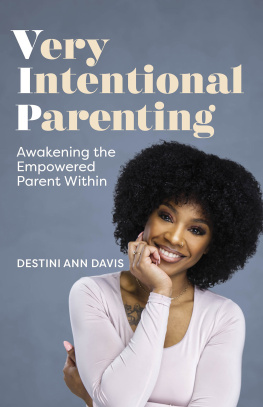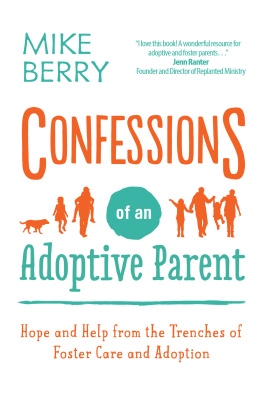Untigering
Peaceful Parenting for the
Deconstructing Tiger Parent
by Iris Chen
Copyright 2021 Iris Chen
All rights reserved. This book or any portion thereof may not be reproduced or used in any manner whatsoever without the express written permission of the publisher except for the use of brief quotations in a book review.
For more information about this author,
please visit www.untigering.com
Cover design: Julia Kestner
Interior design: Priya Paulraj
Editor: Olga Knezivic
ISBN: 9798571817721 (Paperback)
To my parents,
my partner Jason,
and my children Noah and Caleb
three generations who are untigering together.
Contents
FOREWORD
I ris and I are both Asian, both mothers, and our husbands even share the same name and almost the same birthday. But thats where the similarities end. Shes introverted, Im extroverted. I am fast, loud, and clamor for attention, while shes steady, grounded, and invites participation. Yet we somehow ended up as kindred spirits, each writing about our unique experiences and challenges within the gentle parenting space.
I began my writing career in the early 2010s as some popular authors emerged from the faith blogging scene. As I practiced my craft of writing, I imitated the voices of other bloggers, a common path for many writers as we write our way to our own voice. The glaring problem, which was immediately noticeable to me, was that the prominent voices were all white.
When I shifted into writing about parenting, the problem was even worse. Parenting literature is even more white-dominant than stories about faith. I worked hard to decolonize my own voice, navigating the intricate calculations many people of color are familiar with: how much to cater to the white audience with buying power; how much to insert my own stories knowing it will sound foreign and perhaps not resonate as well; how to be myself without making white people uncomfortable.
Along comes Iris Chen, with her unapologetically Asian tagline: UNTIGERING. I hope my white readers will find universal resonance as I write out of my particular experience, she tells me. And I wish I had that kind of casual audacity to speak bravely as a person with multiple intersectional identities.
Gentle parenting, peaceful parenting, and its many iterations of similar branding have public white-representing faces, and that in itself is a parenting problem. If parents are consuming predominantly white voices to guide their parenting, our kids are internalizing whiteness as the norm, and we fail to break the cycle of systemic racism.
Untigering isnt just a book about anti-racism, its a guide to raising children with justice from Iriss perspective, a voice we need to include on our parenting literature shelves. The best parenting practice isnt done in the direction of our children but is a journey inwards, towards our own path of healing and growth. Attempting to change our children will end in frustration, but we can change ourselves for a better path forward. Some authors are gurus, giving us aha moments and inspiring us towards deep reflection. Others are professors, teaching us how to do the work. Iris manages to combine both of these roles as she walks us through both the why-you-need-to-do-this-work and the heres-how-to-do-it. She gives us containers, the vocabulary to name our unique family stories; and because of these containers, she gives us the capacity to create new stories that are more closely aligned with the values we want for ourselves and for our children.
Untigering seeks to treat our children better by doing the deep examination of our own parental instincts and patterns. None of us will be able to finish this work-of-a-lifetime, but we wont be able to begin unless we can describe what were doing. Iris prompts us to write a brave new ending to our stories, some of which have been marked by trauma, oppression, and injustice. The magical part about our courage to write better endings is that it breathes life into our children. Popular parenting sentiments often quip that every generation deals with different challenges and struggles; we joke that the best parenting hack is to save up for therapy for our kids. The implication is that its not actually possible to do better, that were simply exchanging one set of struggles for another. I find this to be fatalistic and untrue. While its true that the work of justice for children is long and likely will take more than one generation, the work that we do in our lifetime matters to us, our children, and their children. We are pushing forward a tide of progress in the way we view and treat children.
The thing about the work of both parenting and justice is that they are both marathons in which its sometimes difficult to discern short-term gains. Its a lot harder, in the short term, to parent a willful child expressing the full range of her emotions than it is to manage a child whose spirit has been broken enough to obey and do as hes told. So those of us who are committed to this work have to give each other regular reminders: its worth it, it matters, it will make a world of difference.
What youre about to read in the following pages is worth it, it matters, it will make a world of difference. Im so grateful that the children you encounter are going to be treated with more compassion and love because of it.
Cindy Wang Brandt
author of Parenting Forward: How to Raise Children with Justice, Mercy, and Kindness
PREFACE
H i! Im Iris.
Here are a few things you should know about me and this book:
I am an American Born Chinese who ended up with Chinese Born American kids.
My parents were immigrants from Hong Kong and Vietnam who came to America in search of opportunities. I was the first of their children to be born in the States and was well on my way to fulfilling the American Dreamgraduating from a top-notch university and marrying a Silicon Valley engineerwhen my partner and I did an about-face and headed out to China to teach English to college students. We went in 2003, thinking wed give it a year. We ended up staying for sixteen. China is where my kids were born and where they grew up; it is the context in which I was baptized into adulthood and motherhood.
This book is about me learning to navigate life and parenting at the intersection of my Chinese and American identities. Throughout the book, I talk about being a child of immigrants, share my experiences of growing up as a Chinese American, relate stories of living in China, discuss Chinese culture, and use the Chinese language. While this book is for anyone who is trying to divest from tiger parenting, it was really important for me to center my own perspective as a person of color (POC), especially as there are so few parenting books out there that are written through this lens. My hope is that Asian American and other POC parents will feel seen and represented through my story. For those who might think this book is not for you, I challenge you to stretch your imagination, expand your understanding, and open yourself to other perspectives.
I am a deconstructing tiger mother who is trying to become a peaceful parent.
My early years of motherhood were fraught with authoritarian, abusive practices. Yelling, spanking, punishing with unreasonable consequencesanything was game as long as I showed my kids who was boss. But far from my dreams of raising a well-behaved, obedient child, my eldest son fought back at every turn, resisting my attempts to control and manipulate him. The behavioral issues only intensified when I became stricter and punished harder, but that was all I knew to do.
Next page
